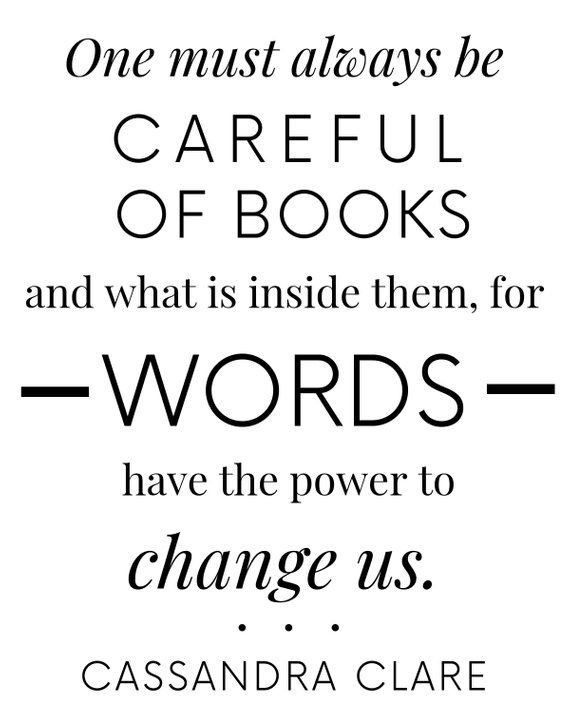
I thought I would end this month’s theme on this note: I’d like to give you book recommendations which revolutionized my perspective on my personal finance so that I can add value to your money journey.
I love to read and I think anyone who knows anything about me knows that reading is an integral part of who I am. There’s limitless treasure in books and while it may not be everyone’s cup of tea, I believe that reading opens up our minds to perspectives beyond our culture, upbringing and beliefs.
In the area of personal finance, there’s a whole range of content from the very simple and almost child-like content to the very complex and mathematical. I’ve found that the ones that speak best to me are those full of practical content; every day habits and attitudes which make incremental changes in your life over a period of time.
So today I’d like to share with you simple lessons I learnt from my list of 5 most highly recommended books (of those I’ve read so far) which will help you establish and grow your life in the area of personal finance.
1. The Richest Man in Babylon by George S. Clason
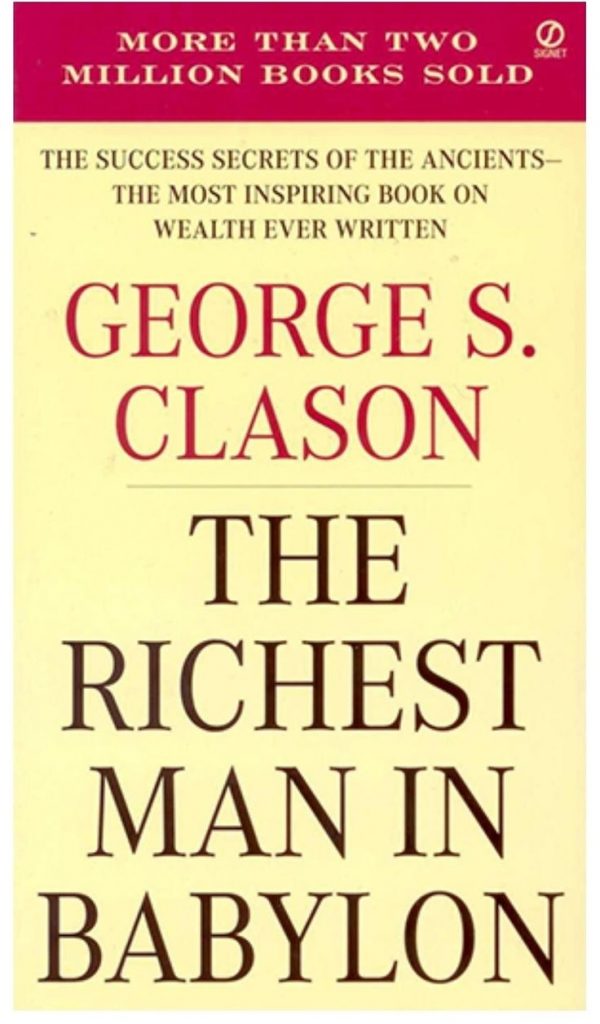
I heard about this book for a long time before I was finally able to find it and once I found it and read it, I totally understood why this book is so highly recommended.
One of the most impactful things I learnt from this book was that to increase my income, I must increase my ability to earn. What that basically means is that you should add value to what you can do so that you can get paid more doing it. If you love to do software coding, learn more programming languages. If you love to do makeup, learn how to do facials as well. Every area in life has something within it you don’t know about. Learn it.
Also on the same, we often say that we want to earn more money, how much more do you want to earn? Give it a figure and work towards that figure. A goal is way easier to achieve when the target is clarified.
The second lesson I learnt (of the many others) is that I should never invest in what I don’t understand. If you must invest in an area, learn everything you can about it from people who know about it. The author tells a story of how a man wanted to be a merchant of rare jewels and he sent a brick maker to buy the goods from a faraway land and bring it to be sold at a profit. When the stones arrived, they found out that they had been swindled since what the brick-maker was given were actually pieces of glass.
Get someone who understands what you want to invest in and let them be the ones to help you along the way. Propaganda and rumors only end up in a gold rush situation where everyone flocks towards one thing only to find that they may have been doing so off of bad information. Know what you’re investing in.
2. The Automatic Millionaire by David Bach
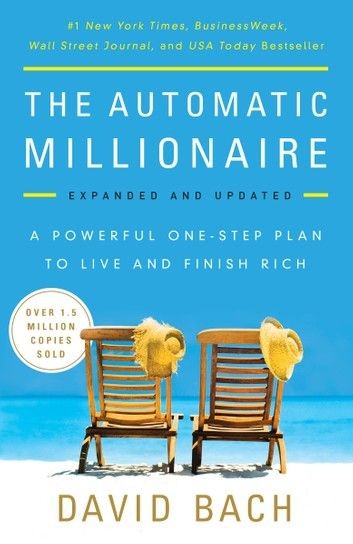
This has to take the price for the simplest personal finance book I have ever read. It has very good online recommendations and I have to agree that this is a great read. In my opinion, it teaches two profound principles.
First, pay yourself first. I have written about this in this month’s articles and I think this is where I first found this principle. It is also echoed in ‘The Richest Man in Babylon.’ The simple practice I learnt here was that for every coin I make, I should keep a portion of it for myself in the form of savings and investments. The benefits of this habit are too many to mention but some of them include having funds for a rainy day, securing your financial future, the ability to retire early or really, whenever you want (depending on how well you’ve planned your finances), ability to explore your dreams like traveling or building your dream home, among many others. The underlying principle is that the sooner you begin, the more you have stored up.
The second lesson in the book is about the virtue of patience. It’s not always fun to wait. I’ve developed a shocking interest in plants and now I have them all over my house. One thing that these plants teach is patience. The period of time I have waited to see them grow some new flowers or leaves is really testing my patience but I’m learning. Financial freedom works the same way; it’s a marathon, not a sprint. The Ksh. 2,500 you faithfully invest every month in that money market fund may be Ksh. 30,000 at the end of the year with some interest but over the course of 25 years at an average interest rate of 10% will give you Ksh. 2.95M! The magic of compound interest and a dash of patience reaps a bountiful harvest.
3. The Smart Money Woman by Arese Ugwu
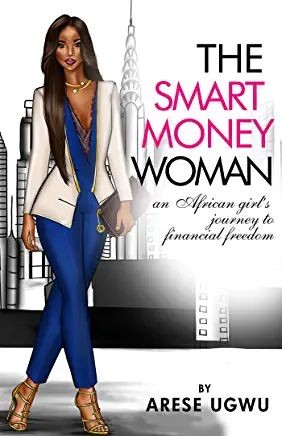
This is a book that was very creatively written. The African background of the author really brought it home with very relatable stories and themes. If you love a good story, you will love this book! And it’s not just for women; the principles apply across the board. Now, picking just two lessons is a tall order but I had to ensure that I keep this article short (as best as I possibly can.)
The first lesson would be that it’s extremely important that I stay in my lane. If you’re not able to afford the car you’d really like, then get the best car with the money you have. If you can’t attend that elegant event because it will cost you your rent, courteously excuse yourself and avoid spending money you don’t have. Staying in your lane doesn’t mean that you won’t one day grow into your dreams. It actually means that you’re setting yourself up for the next season of growth. The money you save today is your dream house tomorrow. Be patient as you grow into the next level.
Secondly, I learnt something I haven’t seen in many personal finance books and that’s the idea of my money personality. Are you a risk-taker or risk-averse? Are you a spender or a saver? Do you do best in employment or entrepreneurship? Leverage your money personality to get the best of it. If you’re a risk-taker, consider risky but sound investments (high risk, high return) which have the potential to bring you a significant profit (remembering the principle from ‘The Richest Man in Babylon’ about only investing in what you understand). If you’re a spender, spend it on assets, not liabilities; buy the car you’d like but put it to use. For example, if you have a car and you don’t really use it as much, put it up on a cab service which will make you some money on the side. Also, if you have weaknesses in your money personality, work towards doing better for yourself by learning how to overcome such weaknesses.
4. Rich Dad, Poor Dad by Robert T. Kiyosaki
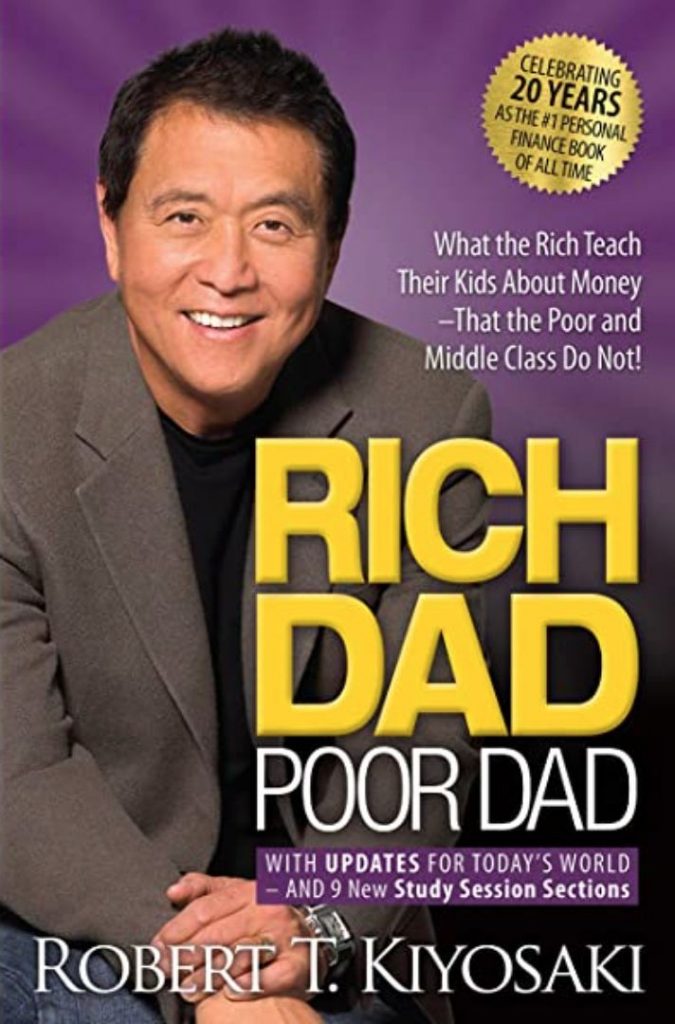
Full disclosure: I haven’t read this book it its entirety (I’ve just watched YouTube animations on it) but I honestly think that it’s an extremely resourceful book which can’t be overlooked when it comes to personal finance. The book is about the two dads representing the two mindsets about money. Poor dad thought of how education followed by a good job would get wealth but rich dad said that managing the asset to liability ratio is the way to progress towards financial freedom and wealth creation.
The two lessons, of the many that I’d point out would be first, be keen enough to understand the distinct difference between assets and liabilities. Some people gain liabilities think that they are assets. For example, your home is a liability because it takes money out of your pocket to maintain. A car for personal use is also a liability because it costs you money to sustain it. However, a house put up for rent or a car bringing in an income at a profit are both assets. Understand the difference. Also, work towards passive income plans which will allow you to grow your wealth in your absence through various investments.
Secondly, wealth creation is about the money you keep, not what you make. You may make Ksh.150,000 but your expenses are Ksh.200,000. What that creates is a cycle of debt and living paycheck to paycheck. As long as you spend more than you earn and save or invest nothing, you will never create wealth. In the book, he basically asks “how well will you survive if your job was taken away today?” What is the state of your emergency fund? For how many days, weeks or months can you maintain your current lifestyle without your job? Answering this question is the bedrock of wealth creation; don’t just make money, keep it and grow it.
5. The Holy Bible

There is no way I can talk about book recommendations without talking about my favorite one: the Bible. A ton of subjects concerning daily life are written about, one of which is money. I’ll point out just two of those parts of scripture in this.
First, there’s Deuteronomy 8:18 which says “But remember the Lord your God, for it is he who gives you the ability to produce wealth, and so confirms his covenant, which he swore to your ancestors, as it is today.” The ability to produce wealth is from wisdom which God gives generously. Having information is one thing but allowing it to transform your thoughts and actions is wisdom.
While worldly wisdom is what people often talk about when they talk about “self-made”, nothing fulfills quite as much as God-given wisdom because it comes from the one who knows “the end from the beginning” (Isaiah 46:10). Thankfully, this kind of wisdom is offered to us because James 1:5 states that “If you need wisdom, ask our generous God, and he will give it to you. He will not rebuke you for asking.” Seek wisdom for sustainable wealth creation.
The second thing would be from Matthew 6:24 which says “No one can serve two masters. For you will hate one and love the other; you will be devoted to one and despise the other. You cannot serve God and be enslaved to money.” Money meant to be a tool in the hands of its master, not vice versa. We should not work for money because money should be working for us (This principle is echoed by Robert Kiyosaki). Greed, lust, envy, unhealthy competition, doing it ‘for the gram’ are all the wrong intentions behind wealth creation because they make us the slave in our relationship with money. Understanding how to use it with an open palm rather than a closed fist helps to adjust our attitudes towards money. God and money cannot share the throne in your life. Pick one.
There are so many more books with great insight about personal finance. However, I believe that this list will take you a long way in creating a strong foundation for the building blocks of your dreams about financial freedom. Let me know what you’ve read and what you think I should have added to my list so that other people can benefit as well.